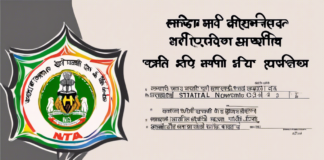Regarding motor development, physiotherapy can help children with their gross and fine motor skills. The process of physiotherapy helps kids develop various sensory and communication skills. Here are a few examples of how physiotherapy can help kids achieve motor development milestones:
Physiotherapy helps children develop fine and gross motor skills
Physiotherapy can help children develop gross motor skills, muscle strength, joint flexibility, and balance. Through a graduated treatment plan, physiotherapists work with parents, teachers, and other caregivers to help children achieve motor development milestones. In addition, pediatric therapy may be needed for children with physical disabilities or who cannot walk or talk well. During treatment, physical therapists can assess whether a child is developing at the correct rate or has a developmental disorder.
The first area where a child may have a delay in motor development. In addition to physical and motor delays, children may fear trying new motor skills, which can impact their overall social and emotional development.
Physiotherapy assesses several systems involved in movement. Gross motor skills require coordination and complex movements of the limbs. Gross motor skills include walking, crawling, jumping, throwing a ball, and riding a bike. Fine motor skills are more specific and require more precision. The physiotherapist will evaluate these skills and develop a treatment plan based on the child’s current physical condition and goals.
Physiotherapy can help children with gross motor skills develop the necessary muscles to control movement. Early intervention is key to achieving these milestones. Physiotherapy can also improve posture, balance, and coordination, essential building blocks for achieving motor development milestones.
It helps them develop sensory and communication skills
Physiotherapists evaluate many different systems that help children move. They evaluate a child’s strength, range of motion, and coordination to identify any blocks to safe movement. They then plan therapeutic activities for kids that match their age, cognitive level, and interests. Therapy aims to improve the child’s motor skills to reach developmental milestones, and these skills are essential for a child’s social and academic development.
Gross motor skill development delays are a common cause of developmental delays, and various environmental and genetic factors may cause these delays. But physiotherapy can help your child improve their motor skills, balance, coordination, and quality of walking. It is also beneficial for children with autism or other global developmental disorders. The benefits of pediatric physical therapy are unique to each child and will vary depending on the child’s specific needs.
It helps them develop a variety of gross motor skills
A wide range of activities in physiotherapy help kids develop a range of gross motor skills. These skills help them do everyday tasks like walking, running, jumping, throwing objects, and crawling. They require large muscle groups and coordination of body movements. Improper development of these skills can result in physical and emotional problems later in life. Physiotherapy can help children develop these skills by strengthening them and improving their health and well-being.
A child’s gross motor skills are essential to developing the body, and a lack of these skills can lead to other developmental challenges. Occupational and physical therapy can help children develop these skills at any age. Still, seeking help as early as possible is essential when these concerns first become apparent. Children need the opportunity to develop as fully as possible, and physical therapy can help them reach their full potential.
Using structured activities for balance is a great way to help kids develop these skills. Balance exercises in a structured environment are essential to help children develop various gross motor skills. They improve a child’s balance, as well as their perception of their centre of gravity. Balance exercises can improve balance and motor response, and a child’s M-ABC score may not be as accurate as it could be.
Children with autism, Down syndrome, and other developmental disabilities often do not reach their gross motor milestones at an appropriate age. Physiotherapist Robina can help them reach these milestones while at the same time addressing other developmental issues. These children are usually slow to reach their gross motor milestones and may require specialized strategies and exercises to improve their mobility and coordination. They may also have difficulty speaking or understanding words.
Physical therapy aimed at accelerating the development of these skills is a common way to help kids with Down syndrome learn to walk. Pediatric physical therapists work with the child to teach basic muscle movements that help them explore their environment and interact with others. Early intervention for gross motor skills is essential in preventing these difficulties from affecting a child’s ability to function as an adult. It can be very beneficial for children with Down syndrome.






